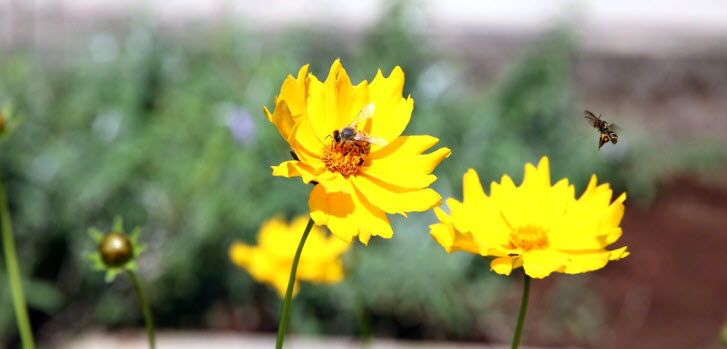Native stingless bees support the conservation of part of the Amazon rainforest.
A project led by the Instituto Tecnológico Vale (ITV) has enabled the multiplication of nests of native bees, increasing the availability of colonies for breeding.
At the indigenous bee biofactory in Carajás, in the Brazilian state of Pará, 110 indigenous bee species are among the 244 already cataloged in Brazil.

Native bees play a fundamental role in food production in the Amazon by pollinating important crops such as açaí, guaraná, and the Brazil nut.
In addition, bees participate in the pollination of various agricultural crops.
The group of native bee colonies consists of indigenous species selected mainly for honey production and pollination but also for producing substances with income potential, such as propolis.
The colonies are housed in Meliponaria in the Vale Amazônia BioPark and the Vale seedling nursery, an area of more than 30 hectares of native forest.
According to Luciano Costa, a researcher at the Technological Institute of Vale (ITV), a guide was created to facilitate the location and identification of the colonies.
“The catalog includes photos of the arrival of colonies and workers of 41 species present in the region, as well as online courses on how to rescue and care for native bees,” he explained.
Honey produced by native bees has a market value of up to ten times that of conventional honey, depending on the variety.
In southeastern Pará, honey production is an economic activity that provides income to small producers in Parauapebas, Canaã, Curionópolis, and other regional towns.
Meliponiculture, the breeding of stingless bees, is a sustainable activity that contributes to the conservation of plant species and biological balance in various Brazilian biomes.
According to studies published by the Brazilian Agricultural Research Society (Embrapa) in collaboration with the Federal University of Pará (UFPA) and the Federal University of the Amazon (UFRA), native bees are the main pollinators of açaí (Euterpe oleracea).
The research shows that they perform about 60% of the pollination work on palm flowers and transport pollen more efficiently than other insects, directly affecting the açaí production chain.
The studies were conducted in natural areas where açaí occurs (floodplain and dry land) and in areas with different levels of management to large-scale monoculture plantations.
More than 200 insect species (including beetles, flies, ants, and other groups) visiting palm flowers, which are also very important for pollination, have been collected.

